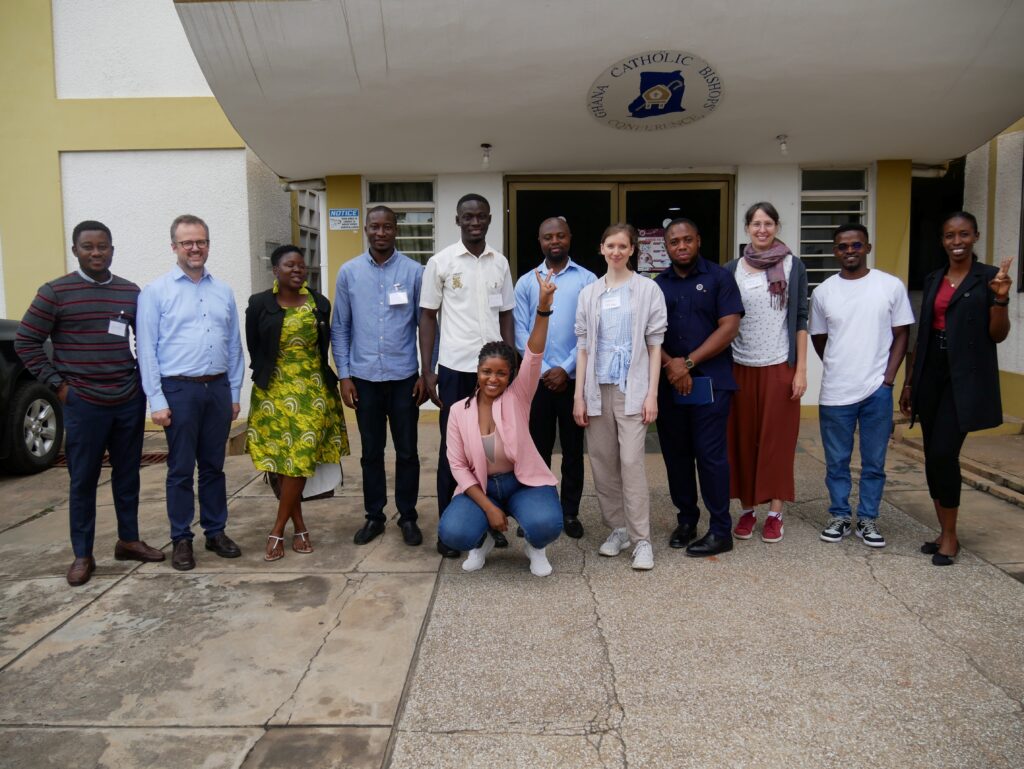In its ongoing commitment to advancing Circular Economy practices in the Global South, a team of the TUM Chair of Circular Economy (CEC) led by Prof. Dr. Magnus Fröhling alongside Vanessa Heinrich and Svenja Klose embarked on a field trip to Ghana from 26 July to 3 August.
This visit was an integral part of the CEC’s ongoing commitment to foster knowledge exchange, identify key features, and develop innovative solutions for sustainable e-waste management in Ghana. Through a series of workshops at the Kwame Nkrumah University of Science and Technology (KNUST) in Kumasi, the CEC team engaged a diverse range of stakeholders from various segments of Ghanaian society – including academics, researchers, and business professionals – to validate and provide further inputs to the ongoing research effort on this important topic.
One of the key highlights of the workshops was the synergy created by bringing together participants from various sectors. The in-person discussions facilitated a rich exchange of ideas, allowing for a more nuanced and comprehensive understanding of the complexities surrounding e-waste management in Ghana.
Complementing these workshops was an insightful visit to the Old Fadama scrapyard, one of Ghana’s largest informal e-waste processing sites, where thousands of e-waste items are collected, repaired, dismantled, and disposed of every day. This on-the-ground experience provided the CEC team with invaluable firsthand insights into the reality of informal e-waste workers, supporting a much deeper understanding of the significant challenges and the unique dynamics that characterize the informal e-waste sector in the country.
Supported by the TUM Global Incentive Fund, this initiative aligns with TUM international goals, as it provided a crucial opportunity to expand and strengthen the collaboration between our university and the KNUST. Special recognition goes to our partners in Ghana and all workshop participants who have contributed their expertise and perspectives, driving our shared research goals forward.
Looking ahead, the CEC is committed to deepening this collaboration and continuing to address global sustainability and circularity challenges. Together, we aim to drive impactful change and promote a truly circular and sustainable economy.


